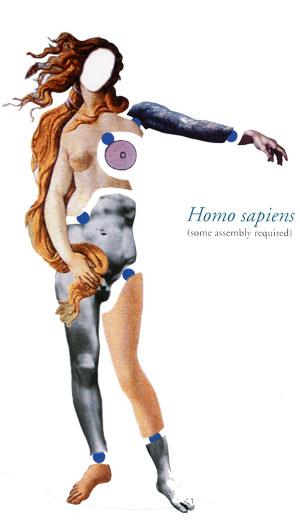The Interdisciplinary Humanities major at UNH explores the question, "What does it mean to be human?" You will learn to use multiple perspectives to explore the questions of human existence. Students earn a cutting-edge liberal arts education focused on critical reading, thinking, research, and writing, while engaging with history, art, literature, and more, guided by dedicated faculty across disciplines. The flexible curriculum allows students to tailor their studies to their interests. Small seminars, a senior capstone, an optional thesis and study-abroad opportunities in Rome, Greece, and Budapest enhance the learning experience.
What is Interdisciplinary Humanities?
The humanities ask, “What does it mean to be human?” The answers we give to that question affect everything we do, from our workplaces to our societies to our families to our politics. As a student in the Interdisciplinary humanities degree program, you’ll learn to use multiple perspectives to explore the fundamental questions of human existence. For answers, you’ll look everywhere from Greek tragedies, postmodern novels and High Renaissance sculpture to pop art, baroque music and contemporary psychological and social theories. You'll be in the company of scientists, artists, musicians, historians, revolutionaries, philosophers and writers who, for thousands of years, have been engaged in the same quest. Your guides will be a core group of Humanities faculty ,committed to, and engaged in, interdisciplinary scholarship as well as faculty members across disciplines in the College of Liberal Arts, who specialize in history, literature, philosophy, art, music, theatre, foreign languages, and more. You'll quickly learn that no human feat stands alone. You will have the opportunity to study how a work of art or literature, for example, was shaped by that which preceded it and how it influenced what followed. And in the process, you may develop a new way of thinking--not only about art and literature, but also about life and yourself.
Why study Interdisciplinary Humanities at UNH?
The Interdisciplinary Humanities major is uniquely flexible, allowing you to tailor your own course of study, including courses from around the university, to address the themes you're passionate about. With small class sizes and a high faculty-student ration, you will be closely advised by professors who are experts in their field and enthusiastic about guiding students on intellectual journeys. Along the way, you'll obtain a cutting-edge liberal arts education, focused on critical reading, thinking, research, and writing skills. The program emphasizes small, intensive seminars and team-taught classes, a senior capstone experience, and an optional intensive year-long thesis during your senior year. You’ll also enjoy study-abroad opportunities that include a popular January-term course in Rome, and programs in Greece and Budapest.
Potential Careers
- Communications or marketing professional
- Content strategist
- Museum curator
- Intelligence analyst
- Lawyer
- Nonprofit administrator
- Archivist
- Journalist or writer
- Compliance officer
- Business executive
- Teacher or professor
- Community engagement specialist
Curriculum & Requirements
The interdisciplinary humanities program examines the fundamental questions and issues of human civilization. Through studying diverse texts in the arts, music, literature, history, philosophy, and science, students seek answers to questions that thoughtful human beings must address in the course of their lives. Whether these questions come from Socrates (What is justice?), from Sir Thomas More (What is obligation to God?), from Raphael (What is beauty?), from Newton (What are the laws of nature?), or from Martin Luther King, Jr. (What is freedom?), they direct our attention to enduring human concerns and to texts that have suggested or illustrated the most profound and powerful answers. The humanities program is housed in the Department of Classics, Humanities, and Italian Studies.
Sample Degree Plan
This sample degree plan serves as a general guide; students collaborate with their academic advisor to develop a personalized degree plan to meet their academic goals and program requirements.
| First Year | ||
|---|---|---|
| Fall | Credits | |
| ENGL 401 | First-Year Writing | 4 |
| HUMA 401 | Introduction to the Humanities | 4 |
| Discovery Course 1 | 4 | |
| Discovery Course 1 | 4 | |
| Credits | 16 | |
| Spring | ||
| HUMA 510/511/512/513/514 | 4 | |
| Discovery Course 1 | 4 | |
| Discovery Course 1 | 4 | |
| Elective/Major/Minor Course 1 | 4 | |
| Credits | 16 | |
| Second Year | ||
| Fall | ||
| HUMA 500 | Critical Methods in the Humanities | 4 |
| Discovery Course 1 | 4 | |
| Discovery Course 1 | 4 | |
| Elective/Minor Course 1 | 4 | |
| Credits | 16 | |
| Spring | ||
| HUMA 510/511/512/513/514 | 4 | |
| Discovery Course 1 | 4 | |
| Discovery Course 1 | 4 | |
| Elective/Minor Course 1 | 4 | |
| Credits | 16 | |
| Third Year | ||
| Fall | ||
| HUMA 510/511/512/513/514 | 4 | |
| Discovery Course 1 | 4 | |
| Discovery Course 1 | 4 | |
| Elective/Minor Course 1 | 4 | |
| Credits | 16 | |
| Spring | ||
| 500- or 600-level HUMA Elective 1 | 4 | |
| Discovery Course 1 | 4 | |
| Discovery Course 1 | 4 | |
| Elective/Minor Course 1 | 4 | |
| Credits | 16 | |
| Fourth Year | ||
| Fall | ||
| 500- or 600-level HUMA Elective | 4 | |
| Elective/Minor Course 1 | 4 | |
| Elective/Minor Course 1 | 4 | |
| Elective/Minor Course 1 | 4 | |
| HUMA 798 | Research Seminar (if pursuing thesis) | 1 |
| Credits | 17 | |
| Spring | ||
| HUMA 701W or HUMA 799 | Capstone Course or Research Seminar | 4 |
| 500- or 600-level HUMA Elective 1 | 4 | |
| Elective/Minor Course 1 | 4 | |
| Elective/Minor Course 1 | 4 | |
| Credits | 16 | |
| Total Credits | 129 | |
- 1
Course selected in consultation with advisor.
Degree Requirements
All Major, Option and Elective Requirements as indicated.
*Major GPA requirements as indicated.
Major Requirements
The major consists of a minimum of 40 credits of academic coursework, with a minimum grade of C-.
The required minimum overall GPA in major coursework is 2.0.
| Code | Title | Credits |
|---|---|---|
| Required Core Courses | ||
| One (1) 400-level HUMA course | 4 | |
| HUMA 500 | Critical Methods in the Humanities 1 | 4 |
| Select three of the following team-taught HUMA topic series courses: | 12 | |
-Ancient Humanities: Cultures and Empires (HUMA 510 A, B, C, D) | ||
-Medieval Humanities: Rise of Global Empires (HUMA 511 A, B, C) | ||
-Modern Humanities: Colonies, Constitutions, and Capital (HUMA 512 A, B, C) | ||
-Global Humanities (HUMA 513 A, B, C, D) | ||
-Space, Place & the Environment (HUMA 514 A, B, C, D) | ||
| Discovery Program Capstone | ||
| Select from the following: 2,3 | 4 | |
HUMA 701W | Capstone Course | |
or | ||
HUMA 798 & HUMA 799 | Research Seminar and Research Seminar | |
| Electives | ||
| Select four electives from COLA at the 500-level or above. At least one must be at the 600-level or above. 4 | 16 | |
| Total Credits | 40 | |
- 1
Students will be made acquainted with the methods and technology required for research in humanities.
- 2
This seminar provides an opportunity for in-depth reading, viewing, and/or listening to texts and artifacts. The emphasis is on the multiple perspectives and methodologies that can be brought to bear upon these works from several humanistic disciplines.
- 3
Each student participates in the research tutorial (for a total of 6 credits) throughout the senior year. The tutorial provides a context within which students may discuss and receive direction in the course of completing a major research paper, the senior thesis. At the end of the second semester, students present their research to the faculty and their fellow students.
- 4
Selected with the advice and approval of each student's major advisor or the program coordinator. These offerings should bear some relation to the student's particular interests and senior research paper, as seems appropriate in each individual case.
Program Learning Outcomes
- Demonstrate the ability to find and evaluate primary and secondary source material necessary for humanistic research.
- Demonstrate the ability to propose, conduct, and present interdisciplinary humanistic research in a written, oral, or other forms.
- Compare and contrast the meanings of major texts and other significant cultural productions.
- Identify and interpret creative and cultural forms from a given historical, cultural, or geographic context.
Curriculum & Requirements
The Humanities Program offers students a set of tools and skills so they can understand and forge our 21st century world. It does so by guiding students through the eternal questions of human life, showing them the answers great thinkers have given to those questions and the ways those answers shape the world we live in. The Humanities curriculum provides structure, progression, and rigor, as well as an ability to think flexibly and accommodate diversity and change. That is why the humanities are essential to the lives of educated people, in any career but especially those who may move between careers.
- Demonstrate the ability to find and evaluate primary and secondary source material necessary for humanistic research
- Demonstrate the ability to propose, conduct, and present interdisciplinary humanistic research in written, oral, or other forms
- Compare and contrast the meanings of major texts and other significant cultural production
- Identify and interpret creative and cultural forms from a given historical, cultural, or geographic context
Program Details

Welcome to the Humanities Program. Humanities students explore the fundamental questions of human existence. What does it mean to be a human being? For answers, humanities students look everywhere: from Greek tragedies, postmodern novels, and High Renaissance sculpture to pop art, baroque music, and contemporary psychological and social theories. Humanities students are in the company of scientists, artists, musicians, historians, revolutionaries, philosophers, and writers who, for thousands of years, have been engaged in the same quest.
To introduce students to their fellow explorers, the University has assembled an interdisciplinary faculty. You will find professors of art, literature, philosophy, and science teaching a course on the search for spiritual life, or instructors of history, political science, and theater offering a course on law and the meaning of justice.
The interdisciplinary faculty reflect an integrated curriculum in which students quickly learn that no human feat stands alone. You will have the opportunity to study how a work of art and literature, for example, was shaped by that which preceded it and how it influenced what followed. And in the process, you may develop a new way of thinking-not only about art and literature, but also about life and yourself. Students from any academic program may enroll in a humanities course. The program offers a major, a minor, and many courses that satisfy general education or elective requirements.
Guidelines
The Senior Capstone Experience in Humanities is an opportunity for Humanities majors to bring their interpretive abilities, their writing skills, and their understanding of cultural traditions to bear on a long-term, independent project in the form of a thesis that will serve as the culmination of their humanities studies at the University of New Hampshire. The Senior Thesis for Humanities majors exemplifies each student's accumulated knowledge and mastery of analysis. All seniors majoring in Humanities must write a thesis over the course of their final year of study.
It is vital that the student wishing to begin a thesis demonstrate sufficient preparation through coursework, have a good working knowledge of the topic proposed, and show evidence of strong research and writing skills. All Humanities majors are therefore required to have completed HUMA 500 (Critical Methods in the Humanities) before beginning the first semester of their thesis work. Ideally, Humanities majors take HUMA 500 in their sophomore year.
A student electing to write a thesis must show initiative by conducting preliminary research to develop an appropriate topic. The completed thesis should demonstrate the student's ability to interpret texts and support the interpretation with secondary critical sources. The student should draw on at least two humanities disciplines for the thesis, which means that at least two professors from those disciplines must approve the thesis project and be willing to serve as advisors to the thesis (in addition to the Humanities thesis liaison, who is always a member of Humanities thesis committees).
During the period in which the proposal is formulated, a student should work in close contact with members of the Humanities faculty, starting with the Humanities Program thesis liaison. The Humanities Program advises each student to begin consulting with humanities faculty during the junior year.
- A student should meet with the Humanities Program thesis liaison during the junior year to begin the process of choosing a thesis topic.
- Also during the junior year, a student should contact two faculty members who represent the fields in which the student proposes to work to ask if those faculty members would be willing to serve as his or her thesis advisor.
- After the student and advisors have agreed on a topic and approach, the student must complete a written proposal, during the first semester of the senior year (as part of HUMA 798, the first semester of thesis work).
- Once completed, and approved by the individual faculty members who have agreed to direct the thesis, the final draft of the proposal must be sent electronically to Humanities Program coordinator and the other two thesis committee members.
Guidelines for Thesis Proposals
The proposal should be approximately 5 pages long (though it may be longer). It should be narrative and free of spelling errors and grammatical mistakes. The more specific the proposal (including the argument) is, the more likely it is to be approved without problems.
The thesis proposal must detail the project carefully. It must include a description of the scope and range of the projected thesis, an explanation of the problem or problems to be investigated, and a description of what strategies will be used in the investigation. The proposal must also include a clearly articulated thesis statement and well-documented bibliography.
It must include the following specific elements:
- A description of the proposed project (what the argument will be).
- A description of what has already been done. (This should include a list of relevant coursework and other preparation. It should also indicate if the thesis is an expansion of a paper from a class.)
- A description of critical or theoretical problems the thesis will investigate and the questions to be explored.
- A prose outline with brief details about what each chapter will cover. For example, an introduction to the problem, section descriptions, and a conclusion would be appropriate.
- A working annotated bibliography, including books and articles likely to be used, that shows familiarity with the field of study.
Guideines for Thesis Completion
Following notification of approval during the fall of the senior year, students should continue researching their topic by surveying the critical literature related to the chosen subject. Students are expected to work throughout the fall semester and winter break in order to meet the various thesis deadlines.
The thesis itself should be at least 35 pages. Theses are to be turned in electronically and in hardcopy to all three committee members, after which time a formal defense will be scheduled. At the defense, the student should briefly present his or her work, discussing both the process of writing the thesis and the thesis content. Once the thesis passes and is awarded a grade, the student should submit a final, revised copy – both electronic and hard-copy – to the Humanities Program coordinator.










